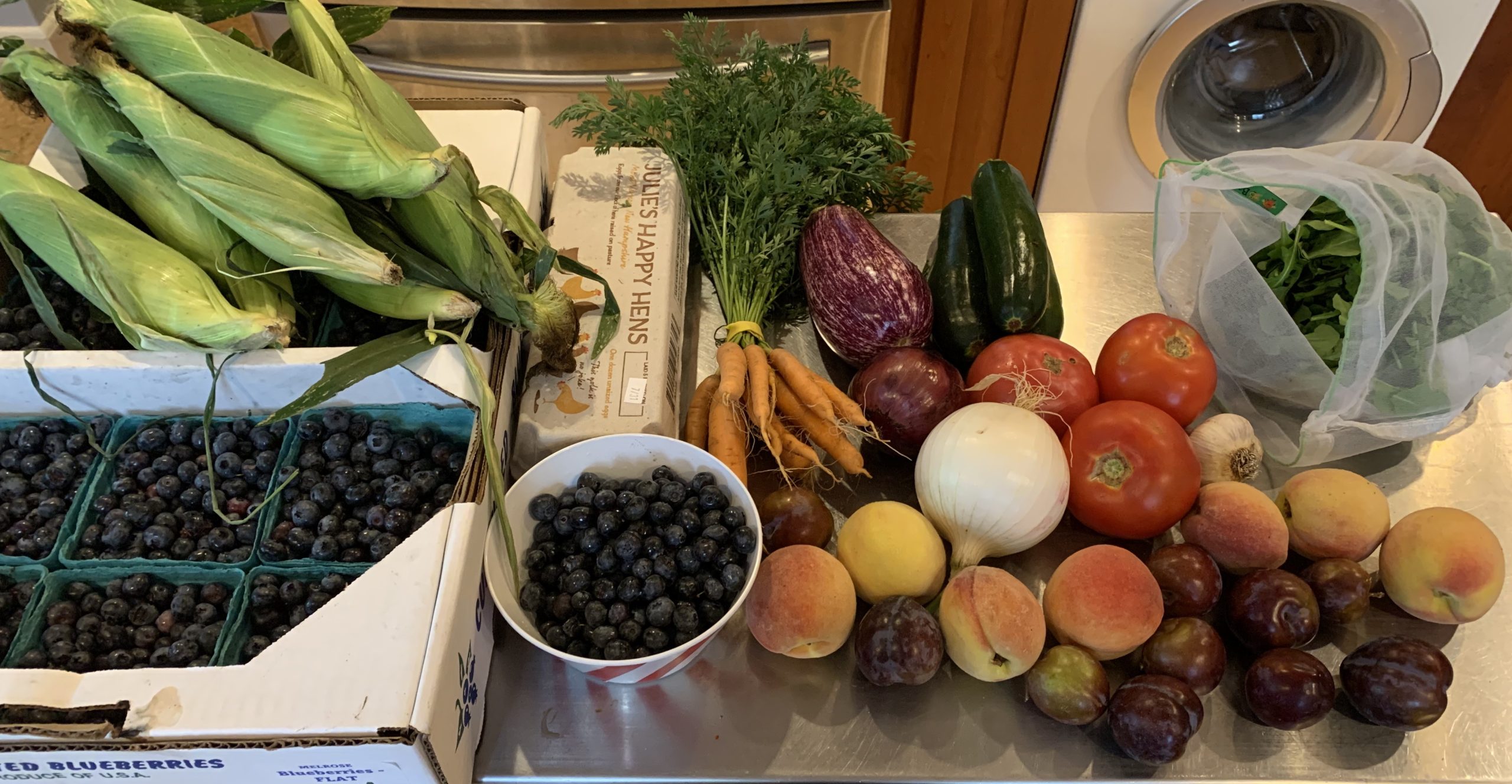August 2022 Update

Show Me the Shares And Show Me the Money
By Julie Pottier-Brown, Operations Manager
In early January, we knew increases were coming, and we hoped we could cover the increases with our new price schedule. For 2022 we set our share prices 8% higher than in 2021. We opened enrollment, and almost immediately started hearing about projected 15-20% increases from some farms. Riverland’s expectations of a small 5-10% increase when we spoke in January vs. the reality of the increased costs of inputs (seed/fertilizer/labor/fuel) were significant. Some items went up more than expected.
This is week 10 of 20 – yes, we are mid-way through our season already! A good time to look at how our share dollars are holding up. We opted to not increase late season share prices – Thanksgiving and December – as well as to keep membership fees the same. We increased the volunteer opt out fee to reflect our staff minimum starting rate of $15/hr. If we do not have volunteers, we offer $15/hr to those willing to step up. We have a small cache of these. If you want to be on the ‘on -call’ list, please let us know!
Some share costs are fixed and easy to price: mushrooms and flowers. Most others are guesswork based on experience. We work with many farms over the season, and buy from 6 to 12 different farms every week (this does not count dairies, bakeries, distributors, etc.) We put together a share that leverages the season, and offsets the pricey with the more affordable. We know that the costs go up when it is tomato season, and down when it is time for greens and apples. Ideally it all works out – that the cost blended together comes in at the per week price we established in January.
- Q: So how are we doing?
- A: Our per week average is running about $1 over for the vegetable shares, and $1.50 for the fruit shares.
- Q: $1-$1.50 doesn’t sound like much, what does this mean?
- A: This is a per week average, so this means in week 10, each veg & fruit share is running $10 to $15 over the planned cost
- Q: OK, What does that mean?
- A: That depends on the next 9 weeks. If we can start to shave off some expense by either making the shares smaller, finding some great deals – these do still happen – we can make it to the 20-week mark.
- Q: OK, what if the prices from farms continue to increase?
- A: We have a decision to make. We can either drop week 20, and every dollar paid in comes back out in 19 weeks instead of 20, or we choose to invest more in our farms, keep going and every shareholder buys another week of distribution.
- Q: Has this ever happened before?
- A: Yes, it has been a long time, but it happened 2 years in a row back in the mid 2000’s. Tamara and I made a commitment to deliver a 20 week season after those challenging years, and we have done that since.
For anyone who is a consumer of anything – food, gas, clothing, cars, travel, insurance – I am sure you have seen the increases. I believe we have managed to stay a great value CSA even with our 8% increase and potential 19 week season.
On another note, the drought has brought an early-ish end to the our blueberry season* for a couple of reasons. First, the bushes don’t produce as much in these conditions, so we can’t get large orders. Secondly, prices have increased twice since July 1 because low production led to slower picking, which leads to higher labor costs.
This drought has been tough on our growers. Thanks for supporting local, and choosing to do so with the Farm Direct Coop.
Julie
